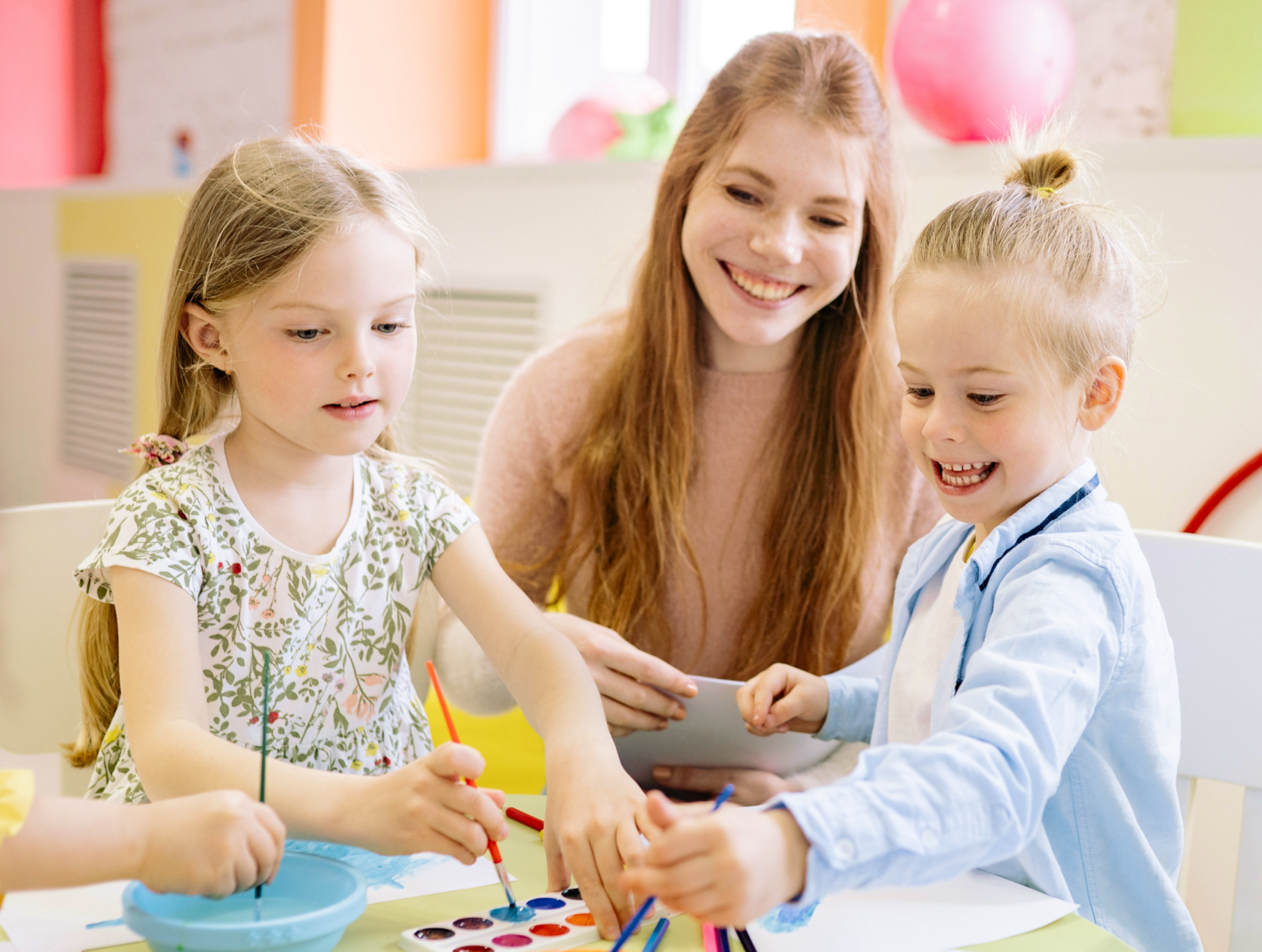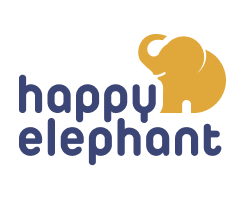Apply Now!
Happy Elephant adheres to the Early Years Foundation Stage (EYFS), a British Curriculum designed to foster a holistic learning environment for children aged from 45 days to 5 years. Our educational approach is grounded in the principles of the well-regarded British Programmes and standards, renowned for their emphasis on hands-on, play-based learning. We place a strong focus on the social and emotional development of each child, ensuring a well-rounded and enriching early childhood education experience.
The best of both worlds
Developing independent, creative and critical thinkers practicing maths, literacy, art and design, music and rhythm, etc.:
Nursery (2-3 years)
- Math including numbers and shapes
- Literacy including reading and writing
- Development of attention and perseverance
- Art, creativity and design
- Understanding the world: people, society, technology
- Music and rhythm
- Physical development
- Communication and language
- Fine motor skills
- Numbers and counting
- Personal, Social and Emotional development
Creating positive relationships with the peers, building self-esteem and improving skills that will aid children’s learning:
Toddlers (1-2 years)
Babies (45 days - 1 year)
Providing full care and supervision in the safe, consistent and welcoming environment of babies from 3 months to 1.2 years:
- Physical
- Language
- Сommunication
Curriculum
We understand that it's all about the excitement in their eyes! At our early childhood center, we ensure the best possible start to your child's learning journey by offering two distinct curriculums: English and English-Russian.
Focusing on children learning to work, play, build relationships, co-operate with others and function as a group beyond the family:
Development Classes (4-5 years)
Building a foundation of cultural behavior and comprehensive developing of children's intellectual and creative abilities:
Building a foundation of cultural behavior and comprehensive developing of children's intellectual and creative abilities:
- Math and Science
- Speech Development
- Art, Craft, and Design
- Numbers, Shapes, and Measurements
- Attention Development
- English Language Classes
- Understanding the World Around Us
- Music and Rhythm
- Yoga and Physical Education
Foundation Stage 1 (3-4 years)
- Basic math
- Reading & writing
- Art, creativity & design
- Development of attention
- World around us & Nature study
- Music & rhythm
- Physical development
- Smart Board Games
All children are encouraged to participate as speakers and listeners in a variety of situations and for a range of purposes and audiences.
Kids learn counting, sorting, matching, seeking patterns, making connections and working with numbers, shapes and measures.
We explore a variety of art processes: painting, drawing, sculpture, weaving, collage.
Language & Communication
Numbers, shapes & measurements
Art, Creativity & Design
Key learning areas
Develop independent, creative and critical thinking
Pupils begin by singing, reciting nursery rhymes, rhyming games and identifying sounds through listening games.
We sing traditional songs and songs that enhance the curriculum. We use scarves, rhythm sticks, and bean bags to practice rhythms
Children develop physical control, mobility, awareness of space and fine and gross manipulative skills both inside and outside.
Literacy including reading & writing
Music & Rhythm
Physical development






The best of
both worlds
both worlds




Happy Elephant adheres to the Early Years Foundation Stage (EYFS), a British Curriculum designed to foster a holistic learning environment for children aged from 45 days to 5 years. Our educational approach is grounded in the principles of the well-regarded British Programmes and standards, renowned for their emphasis on hands-on, play-based learning. We place a strong focus on the social and emotional development of each child, ensuring a well-rounded and enriching early childhood education experience.











practitioners
Positive relationships are:
Learning & development:
Every child is a unique child who is constantly learning and who can be resilient, capable, confident and self-assured.
Observe and understand each child’s development and learning, assess progress, plan for and act on next steps
Value all people
Value development and learning
Stimulating resources, inside and outside, releavant to all the children’s cultures and communities
Rich learning opportunities througn play and playful teaching
Support for children to take risks and explore
Support babbies and children to develop a positive sense of their own identity and culture










Indentify any need for additional support
Keep children safe
Value and respect all children and families equally
positive
relationships
relationships
Children learn to be strong and independent through positive relationships.
Warm and loving, and foster a sense of belonging
Practioners teach children by ensuring challenging, playful opportunities across the Prime and Specific areas of development and learning
They foster the characteristics of effective early learning
Playing and exploring
Active learning
thinking creatively and critically
Sensitive and responsive to the child’s individual needs, feelings and interests
Supportive of the child’s own efforts and independence
Consistent in setting clear boundaries
Stimulating
Built on key person relationships in early years settings
enabling
environments
environments
Children learn and develop well in enabling environments with teaching and support from adults, who respond to their individual interests and needs.
they offer:
learning &
development
development
Recognise the importance of leaning and development. Children develop and learn at different rates.
Practitioners:
a unique
child
child
Enabling environments:
Curriculum
We understand that it's all about the excitement in their eyes! At our early childhood center, we ensure the best possible start to your child's learning journey by offering two distinct curriculums: English and English-Russian.
Babies (45 days - 1 year)
- Physical
- Language
- Communication
Providing full care and supervision in the safe, consistent and welcoming environment of babies from 3 months to 1.2 years:
- Fine motor skills
- Numbers and counting
- Personal, Social and Emotional development
Creating positive relationships with the peers, building self-esteem and improving skills that will aid children’s learning:
Toddlers (1-2 years)
Nursery (2-3 years)
FS 1 (3-4 years)
Development classes (4-5)
- Math including numbers and shapes
- Literacy including reading and writing
- Development of attention and perseverance
- Art, creativity and design
- Understanding the world: people, society, technology
- Music and rhythm
- Physical development
- Communication and language
Developing independent, creative and critical thinkers practicing maths, literacy, art and design, music and rhythm, etc.:
- Basic math
- Reading & writing
- Art, creativity & design
- Development of attention
- World around us & Nature study
- Music & rhythm
- Physical development
- Smart Board Games
- Math and Science
- Speech Development
- Art, Craft, and Design
- Numbers, Shapes, and Measurements
- Attention Development
- English Language Classes
- Understanding the World Around Us
- Music and Rhythm
- Yoga and Physical Education
Building a foundation of cultural behavior and comprehensive developing of children's intellectual and creative abilities:
Focusing on children learning to work, play, build relationships, co-operate with others and function as a group beyond the family:

All children are encouraged to participate as speakers and listeners in a variety of situations and for a range of purposes and audiences.
Kids learn counting, sorting, matching, seeking patterns, making connections and working with numbers, shapes and measures.
We explore a variety of art processes: painting, drawing, sculpture, weaving, collage.
Language & Communication
Numbers, shapes & measurements
Art, Creativity & Design
Key learning areas
Develop independent, creative and critical thinking
Pupils begin by singing, reciting nursery rhymes, rhyming games and identifying sounds through listening games.
We sing traditional songs and songs that enhance the curriculum. We use scarves, rhythm sticks, and bean bags to practice rhythms
Children develop physical control, mobility, awareness of space and fine and gross manipulative skills both inside and outside.
Literacy including reading & writing
Music & Rhythm
Physical development













